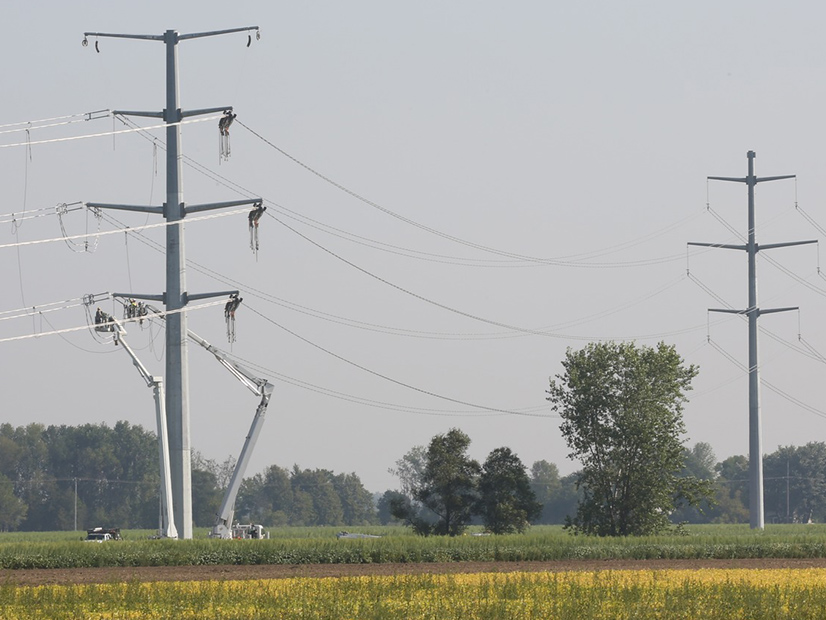A member of the Iowa Utilities Board said last week that regulators are in the early stages of determining how the state Supreme Court’s temporary reversal of right-of-first-refusal legislation will affect incumbent transmission owners’ spending.
The IUB’s Joshua Byrnes said the board is trying to “navigate” the injunction’s effect on MISO’s first long-range transmission plan (LRTP) cycle.
Byrnes said during Thursday’s Organization of MISO States board meeting he is notifying other MISO state commissions that Iowa staff are still working through the implications on transmission development.
Last month’s court ruling stands to affect $2.64 billion worth of transmission work in five Iowa projects that belong to ITC Midwest, MidAmerican Energy and Cedar Falls Utilities (21–0696).
MISO said in an emailed statement that it is reviewing the decision to determine its next steps. Staff did not address whether they might be preparing for a delay in certain LRTP projects or preparing more requests for proposals. The grid operator historically doesn’t take positions on state legislation.
Iowa enacted its ROFR law in 2020 as an amendment to the legislative session’s final appropriations bill. A standalone version of the law did not make it past the House subcommittee level.
LS Power challenged the law following its passage, arguing that it is unfair for it to be barred from competing for new transmission projects in Iowa unless an incumbent decides to relinquish its ROFR.
The Iowa Supreme Court ruled the legislation was unconstitutional under a state rule that an act should address just one subject conveyed in the title. The justices called the appropriations bill “a potpourri of various unrelated subjects”; legislators expressed frustration that they didn’t understand the ROFR component before the late-night Senate vote was conducted.
“We are not surprised the ROFR lacked enough votes to pass without logrolling. The provision is quintessentially crony capitalism,” the court said. “This rent-seeking, protectionist legislation is anticompetitive. Common sense tells us that competitive bidding will lower the cost of upgrading Iowa’s electric grid and that eliminating competition will enable the incumbent to command higher prices for both construction and maintenance.”
The court said that while its role is not to “second guess policy choices of the elected branches or regulators,” it is the court’s role to “adjudicate whether constitutional lines were crossed.”
The court concluded that LS Power is “likely to succeed on its constitutional challenge.” It vacated a prior appeals court decision, reversed a district court’s ruling, and remanded the case to the district level to “finally” decide the merits of LS Power’s arguments.
The Iowa ROFR legislation faces an uncertain future as other MISO states have introduced and sometimes discarded ROFR legislation since the beginning of the year. (See MISO States Ramp Up ROFR Legislation.)


